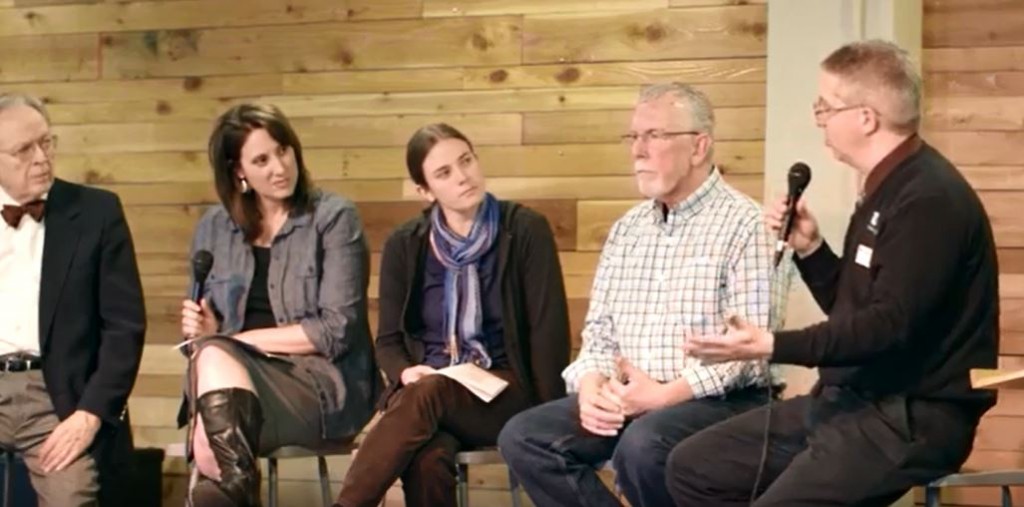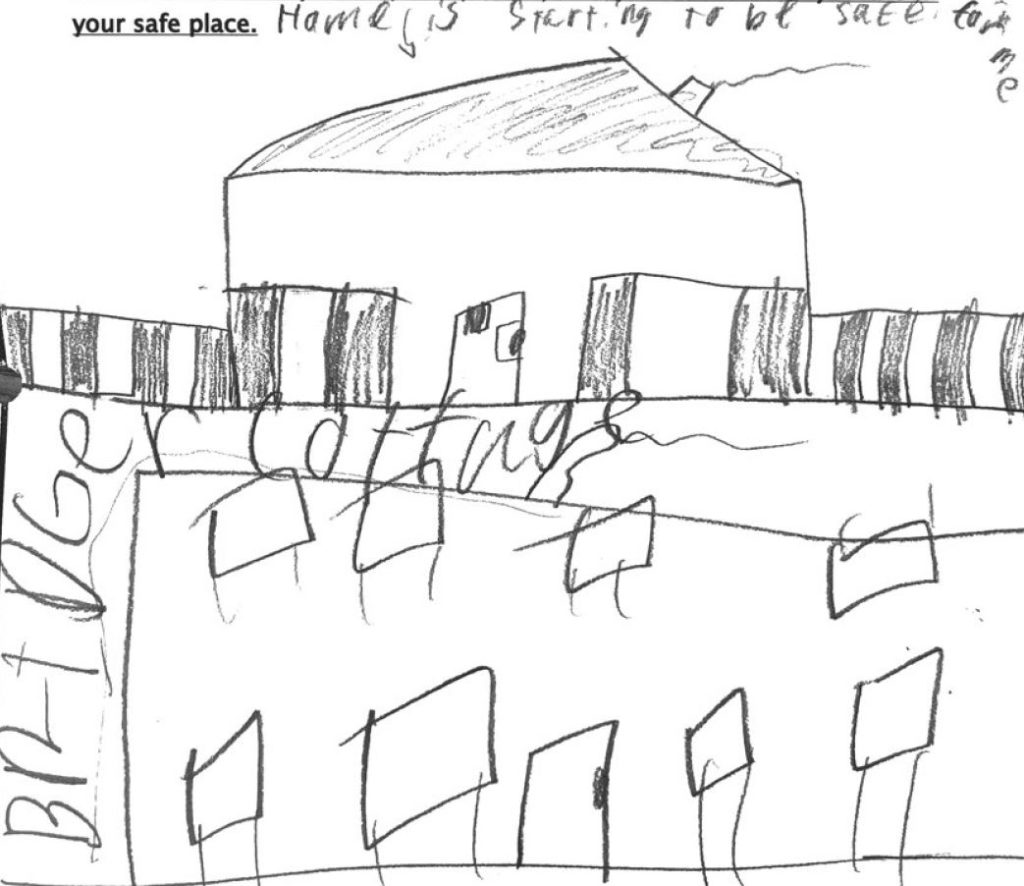from John 6:24-35 (NIV)
24 Once the crowd realized that neither Jesus nor his disciples were there, they got into the boats and went to Capernaum in search of Jesus.
25 When they found him on the other side of the lake, they asked him, “Rabbi, when did you get here?”
26 Jesus answered, “Very truly I tell you, you are looking for me, not because you saw the signs I performed but because you ate the loaves and had your fill. 27 Do not work for food that spoils, but for food that endures to eternal life, which the Son of Man will give you. For on him God the Father has placed his seal of approval.”
28 Then they asked him, “What must we do to do the works God requires?”
29 Jesus answered, “The work of God is this: to believe in the one he has sent.”
30 So they asked him, “What sign then will you give that we may see it and believe you? What will you do? 31 Our ancestors ate the manna in the wilderness; as it is written: ‘He gave them bread from heaven to eat.’[a]”
32 Jesus said to them, “Very truly I tell you, it is not Moses who has given you the bread from heaven, but it is my Father who gives you the true bread from heaven. 33 For the bread of God is the bread that comes down from heaven and gives life to the world.”
34 “Sir,” they said, “always give us this bread.”
35 Then Jesus declared, “I am the bread of life. Whoever comes to me will never go hungry, and whoever believes in me will never be thirsty.

The gospel narrative above follows upon miraculous feeding of the five thousand. The crowd is seeking out Jesus, the source of that miracle. Jesus has met their physical needs and provided them hope that things might be getting better. Hope was a powerful motivator for an oppressed and marginalized people.
The promised land of the Joshua generation, where God was mightily with and for his people, now seems cursed by God. They are ruled by pagan foreigners who keep them poor and hungry. Enter now the miracle worker from Nazareth, Jesus the Carpenter’s son. Jesus, the Son of Man, rabbi, and teacher of simple yet bewildering stories. Hope is kindled.
The crowd came looking for bread, looking for Jesus. We each come to God looking for something, needing something. So, I am grateful that Jesus’ rebuke of the crowd is a kind and patient one. “You are looking for another meal, a second great handout, perhaps another miracle. Providing a meal is easy. Meeting the eternal need you have is much more significant. This ‘work’ should be your main concern. That’s the food that you should be hungering for!”
Then, that same crowd, seeing a Joshua-generation opportunity, ask a very interesting and insightful question… “What must we do to do the works that God requires?”
Meaning… What must be done first in order to be in a position to behave in a manner God will find worthy?
Do you see why that is such an insightful question? Do you see how this question suggests that their motivation has shifted from themselves and their needs to God’s character and provision?
“What do I have to do?” is a self-centered question, a linear and logical approach to relationship that is focused on a transaction… I scratch your back, you scratch mine reciprocation. It treats the other, whether family, friend, coworker or God as a means to an end.
“What must I do in order to do that which is required?” is a much deeper question. It is a retreat from the purely transactional and suggests the transformational. It asks, “What in ME needs to change in order to act in a way that will be pleasing to the other person in this relationship.” There’s the key: this is a relational question.
Jesus’ answer to their question gives us the key to healthier living, relating, and being… the answer to the questions that we came to worship with today and the ones that are just now occurring to us in light of scripture are all answered in this: Open yourselves to the relationship that makes our works—our lives—significant in God’s economy of grace: “The work of God is this, to believe in the one he has sent,” Jesus answered them.
Belief. Belief is the foundational work making the other “works” God requires possible. This is where we see a connection between Jesus’ response to the crowd and the work of Intermountain in building hope through healing relationships.
Relationships are hard. In part, this is because every relationship we have has some level of dysfunction, because we are imperfect people. Our sin and relational baggage makes having healthy relationships hard work. Often, the children and youth Intermountain serves—alongside their families—have a level of dysfunction that is complicated by trauma, an emotional special need or a mental health diagnosis.
Developmentally, the ability to trust the world and the people in that child’s world as worthy and deserving of trust, has been eroded, damaged, or stunted.
When this happens to one of us, we learn to cope or adjust to circumstances. We protect ourselves with defenses that allow us to manage the world. We adapt and we survive… we do not thrive.
Additionally, belief in the love relationship of the caregiver is necessary for healthy relationship, bonding, attachment between child and parent. Without this foundation, it is very difficult to form what we’d call alliance (relationally, you are “on the same team”) and our interactions devolve into a struggle for compliance (“can I get you to do what I need you to do?”).
You and I—all of us—are tempted to enforce compliance whenever we cannot achieve an alliance—a relational connection or reciprocation that brings true shalom, peace, righteousness, and comprehensive flourishing. This is what Jesus longs for us each to have. He wants us to do the “work that proceeds all other works.” He desires that we believe and trust in him.
Finally, I want to point out how in this passage Jesus seamlessly transitions from the recent miracle of the loaves and fishes to teach a spiritual object lesson. He draws on imagery that would be recounted every Passover when the Jewish people would have thought of their past slavery and present oppression while longing for freedom.
“I am the Bread of Life…” he tells them. He explains, “Your ancestors received bread from heaven to sustain them until they entered into the promise God had for them. But come receive the Bread of Life—me!—and never go hungry.” Jesus told them. He tells us still.
Come to Jesus. Believe in the one the Father has sent from heaven. Take of this heavenly food and enter into the joy of healthy, healing relationship.
Let us pray:
Jesus, our Bread of Life, you sustain us for the journey of discipleship until we fully enter the promise of our salvation. May we be fueled to do the work that proceeds are other works, to truly believe and trust our lives into your care. We intercede for those who have had their ability to trust and believe in relationship damaged, especially those children and families that Intermountain serves. And, we pray for ourselves and our fellowship together. May we always seek alliances with others rather than trying to enforce compliance. May we engage wholeheartedly in the task that love places before us, the demands love makes of us… surrendering self-seeking motivations for the good of your Kingdom and its graceful reign among us. In the name of the Father, Son, and Holy Spirit we pray. Amen.








 Click here to subscribe to our RSS feed with your favorite email client and be alerted to new articles.
Click here to subscribe to our RSS feed with your favorite email client and be alerted to new articles.